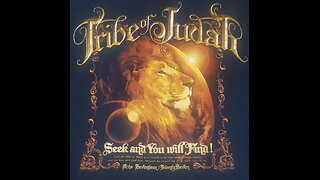Body Basics-The Resurrection
Here is the first example in the Strong’s concordance as it’s used in Revelation
Resurrection G # 386 anastasis: a standing up, i.e. a resurrection, a raising up, rising
Revelation 20:5 But the rest of the dead lived not again until the thousand years were finished. This is the first resurrection.
Judged at the JSOC and found guilty. They missed the first resurrection and have to wait a thousand years for the next one. They have been changed into their spiritual bodies but they are still mortal and liable to die. (Greek words for this concept are; nekros, hoi nekroi, ek nekron and 'ek ton nekron. (Details below)
Revelation 20:6 Blessed and holy is he that hath part in the first resurrection: on such the second death hath no power, but they shall be priests of God and of Christ, and shall reign with him a thousand years.
The second death will have no power over the first fruits because they were judged at the JSOC and found not guilty. The GWTJ will be rewards for them at the end of the Millennium. They have been changed into their spiritual bodies and they have been rewarded with eternal life and to be with our Father for eternity.
The word “resurrection” is used 40 times in the NT but I want to focus on these two. This is just one more example of how the Geek doesn’t come through in the English translation.
When the word “resurrection” is mentioned people conjure up all kinds of images in their mind of people rising up out of their graves like a zombie apocalypse.
To break it down, one of the meanings is a literal resurrection from the dead. In other words, the flesh comes back to life after it dies like Lazarus did. It’s the same body, it just came back to life.
The second meaning is to “rise” to a higher level or even dimension. To rise up, To rise from one plain of existence to another.
The third is a (moral) recovery (of spiritual truth)
You are elevated or lifted up
No… people are not lying in a hole in the ground waiting to resurrect from the dead at the second coming.
If you keep the dying process in context you will better understand the true meaning of the resurrection. To resurrect the old flesh body is not what happens at the second coming, we are all changed in the moment of the twinkle of an eye. That is not a literal resurrection but it is a change of bodies and the old flesh body is done away with. Why would you want to resurrect the old body? Your new body is made in the same image and likeness and that is the body you raise to. You must rightly divide which body is being spoken of when it comes to dying. Your spirit body has never died and never will unless you are found guilty at the GWTJ.
The Greek explanation for the two bodies is below, one celestial and one terrestrial. Many conflate and even confuse which body is being spoken of in many texts of the Bible.
The word nekros (Noun and Adjective) has different meanings, according as it is used in different connections:—
1. With the Article (hoi nekroi) it denotes dead bodies, or corpses or carcasses in the grave, apart from the personality they once had. This is the Old Testament idiom also. See Septuagint, Genesis 23:3, 4, 6, 8. Deuteronomy 18:11; 28:26. Jeremiah 7:33; 9:22; 19:7. Ezekiel 37:9. See notes on Matthew 22:31. 1Corinthians 15:35.
2. Without the Article (nekroi) it denotes the persons who were once alive, but who are now alive no longer: that is to say, dead persons as distinct from dead bodies. Compare Deuteronomy 14:1. Judges 4:22. Lamentations 3:6. And see notes on Matthew 22:32. Acts 26:23.1Corinthians 15:12, 12, 13, 15, 16. Hebrews 13:20, etc.
3. With a Preposition, but without the Article, which may be latent in the Preposition (ek nekron), it denotes out from among dead people. Reference Mark 9:9, 10. Luke 16:30, 31. John 20:9. Acts 10:41. Romans 6:13; 10:7, 9; 11:15. 1Corinthians 15:12-, 20. Hebrews 11:19.
4. With a Preposition, and with the Article; for example 'ek ton nekron, it denotes emphatically out from among the dead bodies, or corpses. Compare Ephesians 5:14. Colossians 1:18; 2:12.
5. The bearing of this on 1Peter 4:6 will be better seen if we note that we have nekroi (See No. 2, above), meaning people who were then dead, but who had had the Gospel preach to them while they were alive; and this is confirmed by the Greek Particle, men(=although) in the next clause, which is ignored both by the Authorized Version and Revised Version. The verse reads thus: "For to this end to those who are (now) dead was the Gospel preached, that though they might be judged in the flesh, according to [the will of] men,¹ yet they might live [again, in resurrection], according to [the will of] God, as regards to [the] spirit"; that is to say, in spiritual bodies, spoken of in 1Corinthians 15:44, 45. 2 Corinthians 5:10 JSOC
-
 20:24
20:24
RemnantSeed
7 months agoDry Bones-House of Judah- House of Israel
3.44K2 -
 LIVE
LIVE
Revenge of the Cis
1 hour agoEpisode 1356: The House Always Wins
3,593 watching -
 1:02:33
1:02:33
In The Litter Box w/ Jewels & Catturd
20 hours agoDems Crash & Burn | In the Litter Box w/ Jewels & Catturd - Ep. 584 - 6/11/2024
13.6K15 -
 1:05:08
1:05:08
Barstool Chicago
1 hour agoThe Mid Show LIVE | Tuesday, June 11, 2024
243 -
 1:12:57
1:12:57
Awaken With JP
4 hours agoTruth Conquers - LIES Ep. 44
22.8K43 -
 1:59:03
1:59:03
Matt Kim
3 hours agoDoes America Need God? w/ Pastor Doug Wilson | Matt Kim #098
14.7K8 -
 42:53
42:53
Standpoint with Gabe Groisman
3 hours agoEp. 29. Lawfare in the 2024 Elections with Josh Hammer
12.9K6 -
 2:07:31
2:07:31
Due Dissidence
7 hours agoDue Dissidence LIVE SHOW in NYC Recap, Brie Firing FALLOUT, Israeli 'Moderates' Resign
20.9K2 -
 1:46:22
1:46:22
Side Scrollers Podcast
5 hours agoNickMercs Cancelled For Facts, RIP Comicstorian, Nintendo Direct Leaks | Side Scrollers
21.4K6 -
 2:58:14
2:58:14
The Charlie Kirk Show
4 hours agoHunter Biden, Convict + The Pelosi Tapes + Censoring Prager | Schlichter, Alexander, Prager | LIVE
95.6K36